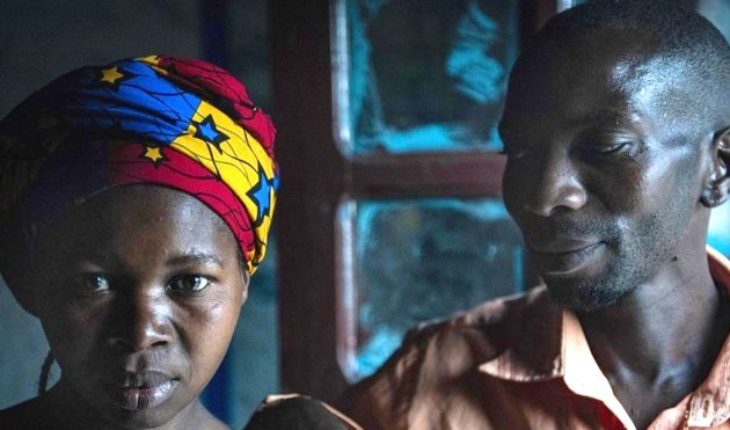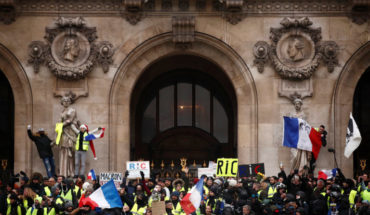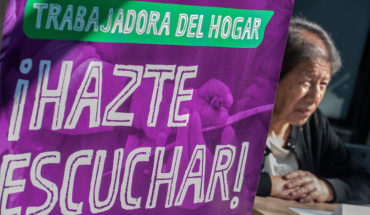His stories of how he tried and raped his wife, Jullienne, are sincere, graphic and disturbing.
In a modest bungalow in the quiet village of Rutshuru, in eastern Democratic Republic of Congo, Bagwiza recalls a particular attack when his wife was four months pregnant.
“I turned around and gave him a little kick in the stomach,” he says, as he describes that she fell to the ground and was bleeding. The worried neighbors quickly took her to the hospital.
Your crime? Jullienne had been secretly saving money for household expenses through a local women’s organization.
Before the attack, she had refused to give her husband money for a pair of shoes.
“True, the money was yours,” says Moises Bagwiza. “But as you know, today, when women have money they feel powerful and prove it.”
Traditional ideals of virility
This resentment lies at the heart of what some call a crisis of modern African masculinity.
For centuries, men were educated with clearly defined ideas of what it means to be a man: strength, emotional indifference, protection, and being the provider of their family.
But the evolution of gender roles, including greater female empowerment, combined with high levels of male unemployment, is thwarting men’s ability to live up to those traditional ideals of virility.
And for some men like Bagwiza, a woman who has financial independence represents an existential threat that leads to the crisis.
He felt that violence was the only way to communicate with his wife.
“I thought it belonged to me,” he says. “I thought I could do whatever I wanted with it. When I came home and she asked me something, I beat her. ”
Compensation for male “failure”
The case of Bagwiza is far from unique.
The Democratic Republic of the Congo has one of the highest rates of rape in the world, and it is estimated that approximately 48 women are raped every hour, according to a study by the American Journal of Public Health.
Many experts attribute the country’s rape crisis to a long-standing conflict in eastern territory, where rival militia groups commonly used rape and sexual slavery as a weapon of war.
But the main cause of rape in the Democratic Republic of the Congo is much deeper, according to Ilot Alphonse, co-founder of the NGO “Congo Men’s Network”, based in Goma City, very close to Rutshuru.
“When we talk about sexual violence only in the context of armed conflict, we are a little lost,” he says.
“We have inherited this way of treating girls as Asúbditos. Men think they have a right to have sex all the time. The cause of sexual violence is the power and position that Congolese men have always wanted to maintain. ”
Danielle Hoffmeester, of the Institute for Justice and Reconciliation (IJR) in South Africa, agrees.
She believes that gender-based violence is directly related to the way men are socialized from children and their inability to meet the strict rules of traditional African masculinity.
“Providing is very important in virility and the inability of men to support their families led many of them to compensate for this ‘ failure ‘ with often toxic and violent ways,” he says.
Engaging women in discussions
Ilot Alphonse says that he was in the past both a perpetrator and a victim of violence.
“At school we were beaten, at home they beat us, and in the village we organize fighting sessions,” he describes.
Alphonse points out that he internalized the violence that later became a way of communicating.
“Sometimes I beat my girlfriend, and it was for her to apologize. I remember one day when we were still kids, I had a fight with my sister and I threw a knife at her. ”
Anti-rape initiatives that have tried to combat rape in Africa have typically focused on women who are the majority of victims and men were excluded because they are often perpetrators.
But for Alphonse, these initiatives address the symptoms rather than the root causes of sexual violence.
“We are fighting against gender-based violence,” he says.
“We have to involve men and boys who are part of the problem, so that they have a space to change things because they have influence in the community.”
And that’s exactly what Alphonse and his colleagues did.
They have created the Baraza Badilika, a contemporary version of old meeting spaces where men gathered to solve the problems of the community and initiate the children to virility.
According to Alphonse, with successive conflicts that devastated villages and destroyed lives, these spaces were almost eradicated, leading to the lack of male models for young men.
While the traditional Baraza Badilika (which in Spanish means something like circle of change) only attended men, this new meeting of the 21ST century gives women leadership roles.
“It is really time for women to invade these spaces,” says Alphonse.
“Husbands changing”
Every week, about 20 men gather in the Baraza for two hours to learn about positive masculinity, gender equality and paternity.
The workshops are supervised by a man and a woman facilitator, who use films, illustrated books and psychodrama sessions to “reconfigure the brains” of those who exercise sexual violence.
Alphonse says that most women tell her that her husbands have changed after attending the workshops.
“They say: ‘ We went to the imam, to the shepherds, to the traditional chiefs, but he did not change. He was arrested several times, but he didn’t change. Suddenly, I see he’s not violent and comes home on schedule. ”
Bagwiza also traveled a long way since he hit his pregnant wife.
“Of course it is not (a change) 100%, we are human, but many things improved dramatically. Now we have conversations and our sexual relationship has improved a lot. ”
Alphonse is determined to reach “all men” in Democratic Republic of Congo with his philosophy of positive masculinity.
“We dream of seeing the end of all forms of violence in this country so that we can build a society for men, women and children,” he says.





